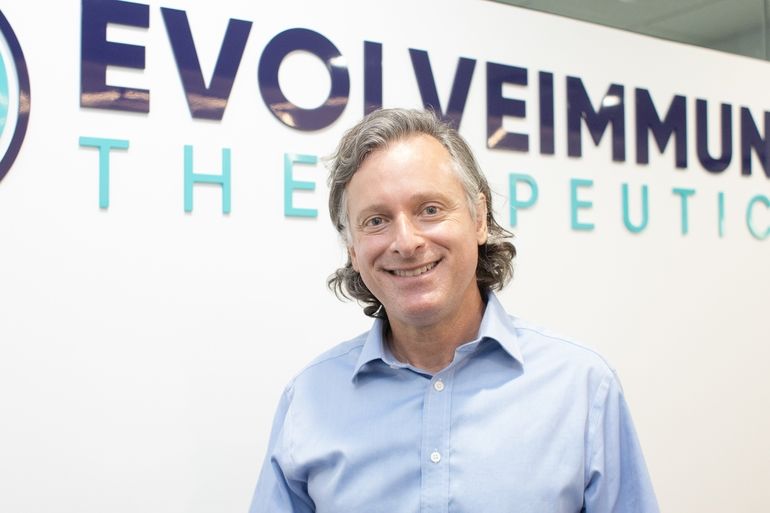Processing Your Payment
Please do not leave this page until complete. This can take a few moments.
-
News
-
Editions
-
- Lists
-
Viewpoints
-
HBJ Events
-
Event Info
- 2024 Economic Outlook Webinar Presented by: NBT Bank
- Best Places to Work in Connecticut 2024
- Top 25 Women In Business Awards 2024
- Connecticut's Family Business Awards 2024
- What's Your Story? A Small Business Giveaway 2024 Presented By: Torrington Savings Bank
- 40 Under Forty Awards 2024
- C-Suite and Lifetime Achievement Awards 2024
- Connecticut's Health Care Heroes Awards 2024
-
-
Business Calendar
-
Custom Content
- News
-
Editions
View Digital Editions
Biweekly Issues
- April 15, 2024
- April 1, 2024
- March 18, 2024
- March 4, 2024
- February 19, 2024
- February 5, 2024
- January 22, 2024
- January 8, 2024
- Dec. 11, 2023
- + More
Special Editions
- Lists
- Viewpoints
-
HBJ Events
Event Info
- View all Events
- 2024 Economic Outlook Webinar Presented by: NBT Bank
- Best Places to Work in Connecticut 2024
- Top 25 Women In Business Awards 2024
- Connecticut's Family Business Awards 2024
- What's Your Story? A Small Business Giveaway 2024 Presented By: Torrington Savings Bank
- 40 Under Forty Awards 2024
- C-Suite and Lifetime Achievement Awards 2024
- Connecticut's Health Care Heroes Awards 2024
Award Honorees
- Business Calendar
- Custom Content
Farmington-launched biotech opens lab in Branford
 Photo | Contributed
Stephen Bloch, MD, is co-founder and CEO of EvolveImmune Therapeutics
Photo | Contributed
Stephen Bloch, MD, is co-founder and CEO of EvolveImmune Therapeutics
A company launched as part of UConn’s Technology Incubation Program (TIP) in Farmington is opening a lab in Branford this week after raising $35 million earlier this year.
EvolveImmune Therapeutics uses CRISPR gene-editing technology to discover drugs for cancer and autoimmune diseases and is helmed by veteran Connecticut venture capitalist Stephen Bloch, MD. The company has already attracted early-stage backing from some large pharmaceutical firms.
Bloch is a longtime partner at Westport venture capital firm Canaan Partners, which has been active in Connecticut’s bioscience industry. He teamed with Charles Fuchs, MD, head of Yale’s Smilow Cancer Center, and geneticist Sidi Chen to co-found EvolveImmune in 2019 with technology licensed from Chen’s lab at Yale.
The company has been operating in stealth mode since January at TIP in Farmington after closing on a $35 million Series A round led by Pfizer and Solasta Ventures. Takeda, Elm Street Ventures and Yonjin Venture also participated.
It has since grown to a team of 17 and is preparing to cut the ribbon on its new 6,200-square-foot lab and office space at 23 Business Park Dr. on Thursday.
The company has not disclosed details about the drugs it is pursuing, but says it has licensed a portfolio of novel drug targets from Chen’s lab that could be applied in immunotherapy treatments for cancer or autoimmune diseases.
The targets were discovered using the game-changing technology known as CRISPR, a tool for editing genomes which has been described as “genetic scissors” because it allows scientists to cheaply and easily alter DNA sequences. The two scientists who discovered the technology were awarded the Nobel Prize for Chemistry this month.
Bloch said Chen’s research is unique in that it uses CRISPR to conduct mouse model screenings to discover possible new drug targets. He describes the screenings as an unbiased “sifting process” to search for unexpected results that might be useful in developing new drugs.
“The innovation at Yale was really to be able to edit T cells from normal mice and then re-infuse them back into mice engineered with tumors to see how the T cells then behaved,” Bloch explained. “That’s very, very difficult to do.”
He said the company plans to spend the next two years building “interesting and clinically important packages of antibodies,” with an eye toward developing one or two drugs that can be tested in humans by early 2023.
Chief Operating Officer Rebecca Frey said EvolveImmune was in the midst of hiring this past spring when the TIP incubator temporarily closed during the COVID-19 pandemic, so the company decided to accelerate its plan to search for a larger home in the New Haven area, where it could be close to Yale and a growing cluster of bioscience companies.
“The whole project was really fast tracked. We negotiated the lease in two weeks, and we finished the construction — which was a total gut renovation — in three months,” said Frey, a former vice president of global operations for Alexion Pharmaceuticals.
The company has an option to lease an additional 3,000 square feet at the Branford location next year and also plans to retain an office at TIP, which she said was instrumental in getting the startup up and running.
Bloch said he is “absolutely committed” to growing the company in Connecticut and helping to augment the biotech ecosystem that is being built here. He is hoping to have up to 25 people on board by next year.
Frey, who has also worked for biotechs in Boston and New York, said there’s a misconception in the industry that there’s not enough talent in Connecticut to run a company.
But she said EvolveImmune has had no difficulty recruiting in the state, and also has successfully attracted scientists who are relocating from cities like New York, Boston and Chicago.
“It’s absolutely possible to build a great company here,” said Frey. “When you have good science and good leadership, you can attract the right talent.”

2022 Giving Guide
This special edition informs and connects businesses with nonprofit organizations that are aligned with what they care about. Each nonprofit profile provides a crisp snapshot of the organization’s mission, goals, area of service, giving and volunteer opportunities and board leadership.
Learn more
Subscribe
Hartford Business Journal provides the top coverage of news, trends, data, politics and personalities of the area’s business community. Get the news and information you need from the award-winning writers at HBJ. Don’t miss out - subscribe today.
Subscribe
2024 Book of Lists
Delivering Vital Marketplace Content and Context to Senior Decision Makers Throughout Greater Hartford and the State ... All Year Long!
Read Here-
2022 Giving Guide
This special edition informs and connects businesses with nonprofit organizations that are aligned with what they care about. Each nonprofit profile provides a crisp snapshot of the organization’s mission, goals, area of service, giving and volunteer opportunities and board leadership.
-
Subscribe
Hartford Business Journal provides the top coverage of news, trends, data, politics and personalities of the area’s business community. Get the news and information you need from the award-winning writers at HBJ. Don’t miss out - subscribe today.
-
2024 Book of Lists
Delivering Vital Marketplace Content and Context to Senior Decision Makers Throughout Greater Hartford and the State ... All Year Long!
ABOUT
ADVERTISE
NEW ENGLAND BUSINESS MEDIA SITES
No articles left
Get access now
In order to use this feature, we need some information from you. You can also login or register for a free account.
By clicking submit you are agreeing to our cookie usage and Privacy Policy
Already have an account? Login
Already have an account? Login
Want to create an account? Register
Get access now
In order to use this feature, we need some information from you. You can also login or register for a free account.
By clicking submit you are agreeing to our cookie usage and Privacy Policy
Already have an account? Login
Already have an account? Login
Want to create an account? Register






0 Comments